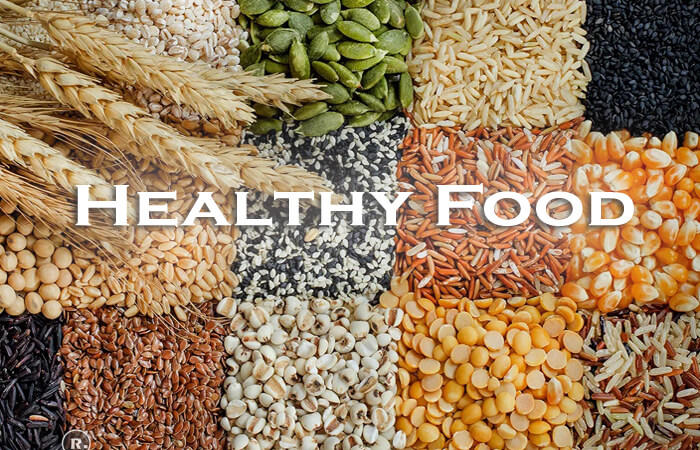Health Benefits of Drinking milk

Milk is one of the most touted health drinks in ages. Mother’s milk is the entire diet of an infant, not only for infants but milk is a perfect diet for everybody else.
We always have been told since childhood to drink milk for stronger bones. The protein, carbohydrates, vitamins, minerals, and antioxidants found in milk are essential for good health. The intake of dairy products has improved bone health, and reduced the risk of osteoporosis. It reduced the risk of cardiovascular disease and type 2 diabetes, and with lower blood pressure in adults.
What is Milk?
Milk is an essential beverage and part of our food. The milk of cows, goats, buffalo, lady, histini, mare, camel, and sheep are considered useful. All essential nutrients are found for the growth and development of the body in the milk.
Milk is an almost perfect meal in which all the nutrients such as fats, carbohydrates, proteins, enzymes, minerals, and vitamins, etc. are present. Breast milk is uniquely superior for infant feeding. It is the normal food for infants from birth. It contains all the essential nutrients, antibodies, and other factors important for growth and development. During childhood and adolescence, the bone mass is being built and the intake of dairy products is very important.
Nutritional Information in milk
Calcium is used for building bones and teeth and in maintaining bone mass. Diets that provide 3 cups or the equivalent of dairy products per day can improve bone mass. Diets rich in potassium may help to maintain healthy blood pressure.
Dairy products, especially yogurt, fluid milk, and soymilk (soy beverage), provide potassium. Vitamin D functions in the body to maintain proper levels of calcium and phosphorous, thereby helping to build and maintain bones.
Milk and soymilk (soy beverage) that are fortified with vitamin D are good sources of this nutrient. Other sources include vitamin D-fortified yogurt and vitamin D-fortified ready-to-eat breakfast cereals. Milk products that are consumed in their low-fat or fat-free forms provide little or no solid fat.
The energy in milk comes from its protein, carbohydrate, and fat content. Milk contains 87% water, Water does not provide a nutritional benefit in the same manner as proteins or vitamins, for example. However, water is extremely important in human metabolism. Water is a major component of the body. Milk contains about 3.4% of fat, fats are a structural component of cell membranes and hormones and fat is the main storage form of excess energy in the body.
There is a protein in milk and all essential amino acids. Proteins are the fundamental building blocks of muscles, skin, hair, and cellular components. Proteins are needed to help muscles contract and relax, and help repair damaged tissues. The vitamins in milk have many roles in the body including metabolism co-factors, oxygen transport, and antioxidants. The minerals in milk have many roles in the body including enzyme functions, bone formation, water balance maintenance, and oxygen transport. Other minor proteins and enzymes in milk that are of nutritional interest include lactoferrin and lactoperoxidase.
So milk and dairy products are a naturally rich source of a wide range of essential nutrients must for a healthy body. Together, milk, cheese, and yogurt provide a unique package of nine essential nutrients, including calcium, potassium, phosphorus, protein, vitamins A, D, and B12, riboflavin, and niacin (niacin equivalents).
Milk Deficiency
Milk and dairy products are the main sources of calcium. Calcium is necessary for optimal bone metabolism and for many other biological systems. Three servings of dairy products are needed to meet the recommended daily calcium intake. The importance of calcium in the management of osteoporosis is controversial.
However, experts agree on the need to correct calcium deficiency, especially when associated with vitamin D deficiency Calcium and vitamin D supplementation are essential to prevent fractures in deficient elderly subjects. Calcium and vitamin D should be systematically added to treatments for patients with established osteoporosis and for those with risk factors.
Health Benefits of Milk
Healthy Bones
Dairy foods provide a combination of four nutrients calcium, phosphate, vitamin D, and protein present in the appropriate ratio that allows for the unique interaction favoring bone and skeletal muscle growth and development.
This mixture of nutrients is like a gasoline mixture with just the right additives to get maximum performance and a winning mixture to lengthen and strengthen bones.
Source of Calcium
Milk is a good source of Calcium. Calcium in bones means stronger bones, it is recommended three glasses of milk per day will help prevent osteoporosis, the weakening of bones.
Source of Vitamin D
Milk is the top food source of vitamin D when you are not getting enough of Vitamin D from sunlight than you need to get your vitamin D from food, and Milk is fortified to be an excellent source of vitamin D.
Rich in Minerals
Calcium and phosphorous are the major minerals found in milk. These minerals are required in large quantities by the rapidly growing neonate for bone growth and the development of soft tissues.
Milk also contains most other minerals found in the body. Some minerals, such as Zn, Mg, Fe, Cu, Mn, and Mo, are required by enzymes as cofactors and are found in milk.
Easing gastric problem
Milk can relieve heartburn and can neutralize the gastric acid produced by the stomach and relieve the pain.
Smoother skin
Raw milk, rich in B-vitamins, alpha hydroxy acids, calcium, and other potent antioxidants, has so many skin benefits. It nourishes skin cells from deep within and keeps skin moisturized all day.
Strong immune system
Milk provides a stronger immune system. Your immune system protects you from foreign substances and microorganisms, including bacteria, viruses, parasites, and fungi. It aids in the prevention of illnesses such as hypertension, dental decay, dehydration, respiratory problems, obesity, osteoporosis, and even some forms of cancer.
Suggested Read: Tips for Preservation of Milk






